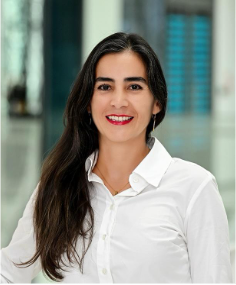Call for papers
15th Symposium in Information and Human Language Technology

Access the conference proceedings, including all presented papers, via the following link: https://sol.sbc.org.br/index.php/stil
STIL is the most important event in Brazil for researchers interested in publishing significant and novel results related to Natural Language Processing (NLP) in general (not only applied to Portuguese). Since 2023, STIL has been held as an annual event supported by the Brazilian Computer Society (SBC) and the Brazilian Special Interest Group on Natural Language Processing (CE-PLN).
In 2024, STIL will be held in Belém, Pará, Brazil, collocated with BRACIS 2024 (The 34th Brazilian Conference on Intelligent Systems), ENIAC 2024 (The 21th National Meeting on Artificial and Computational Intelligence) and KDMILE 2024 (The 12th Symposium on Knowledge Discovery, Mining and Learning) .
The multidisciplinary conference covers a broad spectrum of disciplines related to Human Language Technology, such as Linguistics, Computer Science, Psycholinguistics, and Information Science. It aims to bring together academic and industrial participants working in those areas.
Plenary Speakers

Thamar Solorio – Mohamed bin Zayed University of Artificial Intelligence (MBZUAI)
TITLE: How can AI help us to become better global social beings
Abstract: Cultural norms and values fundamentally shape our social interactions.
Communication within any society reflects these cultural contexts. For example, while direct eye contact is often seen as a sign of confidence in many Western cultures, it may be viewed as disrespectful in other parts of the world. Moreover, human-human interactions include so much more than just the words we utter; nonverbal communication, including body language and other cues, provides rich signals to those around us.
As vision language models (VLMs) are increasingly integrated into user-facing applications, it is becoming relevant to wonder if and to what extent this technology can robustly process these signals. My research group is interested in developing evaluation frameworks to assess the abilities of VLMs concerning interpreting social cues and in developing new approaches that can assist us and, perhaps, enhance our cross-cultural human-human interactions.
Bio: Thamar Solorio is a professor in the NLP department at MBZUAI. She is also a tenured professor of Computer Science at the University of Houston. She is the director and founder of the RiTUAL Lab. Her research interests include NLP for low-resource settings and multilingual data, including code-switching and information extraction. More recently, she was moved towards language and vision problems, focusing on developing inclusive NLP. She received a National Science Foundation (NSF) CAREER award for her work on authorship attribution and was awarded the 2014 Emerging Leader ABIE Award in Honor of Denice Denton. She served two terms as an elected board member of the North American Chapter of the Association of Computational Linguistics (NAACL) and was PC co-chair for NAACL 2019. She is an Editor in Chief for the ACL Rolling Review (ARR) initiative and was a member of the advisory board for ARR.
She serves as general chair for the 2024 Conference on Empirical Methods in Natural Language Processing.

Tiago Timponi Torrent – (Universidade Federal de Juiz de Fora)
TITLE: Language Technology for The Social Good: on the importance of human-curated resources in AI Applications to Healthcare
Abstract: The development of AI systems tackling healthcare problems is one of the hottest topics in our days, the use of pre-trained Large Language Models in those systems being default. In this talk I argue in favor of the importance of human-curated resources for the development of AI applications to healthcare as means to mitigate risks and biases. Specifically, I present the DatatoStopGBV initiative, a project in which a frame-based language resource has been used in the development of an AI system aimed at estimating underreporting of gender-based violence in Brazilian public healthcare systems. I compare the performance of such system with two other systems: one using a LLM and one using only patients’ demographic information. Results corroborate the role of human-curated language resources for dealing with NLP problems which are highly influenced by cultural factors, such as Gender-Based Violence.
Bio: Tiago Timponi Torrent is a Cognitive Linguist working on Multimodal Natural Language Processing within the framework of Frame Semantics and Construction Grammar. He is the head of the FrameNet Brasil Computational Linguistics Lab, PI of ReINVenTA – Research and Innovation Network for Video and Text Analysis of Multimodal Objects – and Professor of the Graduate Program in Linguistics at the Federal University of Juiz de Fora, Brazil. He is a Research Productivity Grantee of the Brazilian National Council for Scientific and Technological Development (CNPq), and winner of the 2021 edition of the Technology in Linguistic Research
Award of the Brazilian Linguistics Association (ABRALIN).
Tiago Torrent served as a Guest Professor at the Department of Swedish, Multilingualism and Language Technology at the University of Gothenburg. He is the one of the co-authors of Copilots for Linguists: AI, Constructions, and Frames.

Rodrigo Nogueira (Maritaca AI):
Title: Can Generative AI Generate Knowledge?
Abstract: We have witnessed a remarkable improvement in the capabilities of generative models. Less than a decade ago, we were amazed by their performance on tasks such as image captioning and machine translation. Today, many of us use them to write code, and some of us even let them take control of our computers to accomplish tasks. However, a question still remains: are they just tools to help us in our everyday lives, or something more, endowed with intelligence? In this talk, we will discuss a more specific aspect of this debate: are they truly capable of producing new knowledge, or are they just “interpolating” existing data? We will see evidence that they are already producing new knowledge in some fields. Then, we will investigate how this capability will allow the creation of higher quality training data and how the distributed nature of this task can drastically reduce the development cost of LLMs.
Bio: Rodrigo Nogueira is the founder and CEO of Maritaca AI, a company specializing in the development of specialized LLMs in Brazil. He was a pioneer in the use of Transformers in search systems and co-author of the book “Pretrained Transformers for Text Ranking.” Rodrigo holds a Ph.D. in Computer Science from New York University (NYU), having been mentored by the renowned Professor Kyunghyun Cho. Throughout his career, Nogueira has made contributions to the fields of Information Retrieval and Natural Language Processing through the creation of models such as BERTimbau, doc2query, monoT5, and more recently, the Sabiá 1, 2 and 3 models, which are specialized LLMs in Brazil.
Relevant topics for STIL 2024 include, but are not limited to:
General topics such as:
- Tools and Resources for NLP
- LLMs, Neural and Vector Spaces applied to NLP
- Multilingualism and Cross-Lingual NLP
- Evaluation methods for NLP tasks
- Corpus linguistics
- Knowledge representation and Ontologies
- NLP resources applied to Digital Humanities research
- Psycholinguistics, Cognitive Modeling, and Linguistic Theories applied to NLP
- Speech
- Multimodality for NLP
- Ethics and NLP
- Interpretability and Analysis of Models for NLP
- Low-resource Approaches for NLP
NLP applications such as:
- Morphological analysis, Part-of-Speech tagging, Text preprocessing
- Phonetics and Phonology applied to NLP
- Syntactic representations and Parsing
- Semantic representations and Semantic processing
- Discourse and Pragmatics
- Dialog and Interactive Systems
- Information Retrieval, Extraction, and Classification
- Machine Translation
- Natural language Generation and Summarization
- Question Answering
- Sentiment Analysis, Opinion Mining, and Argument Mining
- Terminology, Terminography, Lexicology, Lexicography, Phraseology, Lexical Semantics
- Textual Inference
- Automatic Speech Recognition, Text to Speech and Speaker Identification / Diarization
Guidelines for paper submission
STIL 2024 accepts submissions of long and short papers. Long papers should describe finished, original, unpublished work with significant results, and will be presented orally. Short papers may report work in progress, negative results, opinion papers, or applications/demos, and will be presented as posters.
Language
All papers submitted to STIL must be written in Portuguese, English or Spanish.
Length
Long papers may have up to eight (8) pages of content (including tables and figures), and unlimited pages of references. Short papers should have up to four (4) pages of content and unlimited pages of references. Authors will be asked whether they agree to have their long paper relocated as a poster if reviewers recommend it.
Format
Paper formatting must follow the SBC guidelines available at the SBC website and also in Overleaf .
Reviewing process
All papers submitted to STIL will be reviewed by 3 experts in the field. The reviewing process will be double-blind, and therefore, papers should not contain any information regarding their authorship in the header or body of the text. Self-references that reveal the author’s identities must be avoided. For example, instead of “As we previously showed (Silva, 2005) …” authors should use “Silva (2005) previously showed …”.
Submission policy
By submitting papers to STIL 2024, all authors agree that at least one of them will register for the conference and present the paper in case of acceptance. This registration must take place before the deadline for the camera-ready version of the paper and must be made in the category established by the organization.
Anonymity Period
The following rules and guidelines are intended to protect the integrity of the double-blind review and ensure that submissions are reviewed fairly. The rules refer to the period of anonymity, which goes from 1 month before the submission deadline until the date your work is accepted or rejected. Works withdrawn during this period will no longer be subject to these rules.
- During the anonymity period, you may not make a non-anonymous version of your paper available online to the general community (eg, via a pre-print server). Versions include papers with essentially the same scientific content but possibly differ in minor details (including title and structure) and/or length.
- You may submit an anonymous version to the conference if you published a non-anonymous version of your paper online before the anonymity period began. The submitted version must not refer to the non-anonymous version, and you must inform the program chairs that there is a non-anonymous version.
- You may not update the non-anonymous version during the anonymity period and we ask that you do not advertise it on social media or take other actions that further compromise the double-blind review during the anonymity period.
- You can make an anonymous version of your article available (for example, on OpenReview or ArXiv), even during the anonymity period.
Please note that while you are not prohibited from making a non-anonymous version available online prior to the start of the anonymity period, this makes the double-blind review more difficult to maintain and therefore we encourage you to wait until the end of the anonymity period.
Important dates (all deadlines are 11:59 p.m. UTC-12:00 – anywhere on Earth!)
- Final Deadline for long and short paper submission: September 02, 2024
- Notification to authors: October 03, 2024
- Camera-ready versions due: October 10, 2024
Check our satellite events:
- IX Workshop de Iniciação Científica em Tecnologia da Informação e da Linguagem Humana(TILIC)
- Jornada de Descrição do Português(JDP)
- 1º Workshop de Enriquecimento de Dados em Português (paDAWan)
Submission system
Long and short papers should be submitted as PDF files via the JEMS system (https://jems.sbc.org.br/) by the deadline indicated above.
For inquiries about the conference, please send an email to: stil2024@googlegroups.com
STIL 2024 Program chairs
Adriana Pagano (UFMG, Brazil)
Daniela Barreiro Claro (UFBA, Brazil)
| TPC Member | |
| Name | Affiliation |
| Aline Paes | Universidade Federal Fluminense |
| Ariani Di Felippo | Universidade Federal de São Carlos |
| Arnaldo Candido Junior | Universidade Estadual Paulista |
| Carlos Ferreira | Universidade Federal de Ouro Preto |
| Cássio Faria da Silva | Rede Gonzaga de Ensino Superior – REGES |
| Christopher Shulby | Universidade de São Paulo |
| Clarissa Xavier | SiDi |
| Cláudia Dias de Barros | Instituto Federal de Educação, Ciência e Tecnologia de São Paulo |
| Cláudia Freitas | Universidade de São Paulo |
| Diana Santos | Linguateca/Universidade de Oslo |
| Diego Furtado Silva | Universidade de São Paulo |
| Eduardo Goncalves | Escola Nacional de Ciências Estatísticas (ENCE/IBGE) |
| Eduardo Luz | Universidade Federal de Ouro Preto |
| Elisa Marchioro Stumpf | Universidade Federal do Rio Grande do Sul |
| Eloize Seno | Instituto Federal de Educação, Ciência e Tecnologia de São Paulo |
| Ely Edison Matos | Universidade Federal de Juiz de Fora |
| Evandro Ruiz | Universidade de São Paulo |
| Evelin Amorim | INESC TEC |
| Gabriela Wick-Pedro | Instituto Brasileiro de Informação em Ciência e Tecnologia |
| Helen de Andrade Abreu | Universidade Federal de Juiz de Fora |
| Helena Caseli | Universidade Federal de São Carlos |
| Heliana Mello | Universidade Federal de Minas Gerais |
| Hilário Tomaz de Oliveira | Instituto Federal do Espirito Santo |
| Jackson Souza | Universidade Federal da Bahia |
| Jorge Baptista | Universidade do Algarve |
| Juliano Antonio | Universidade Estadual de Maringá |
| Lívia Ruback | Universidade Estadual de Campinas |
| Leandro Henrique Mendonça de Oliveira. | Empresa Brasileira de Pesquisa Agropecuária (EMBRAPA) |
| Livy Real | B2W Digital/GLiC |
| Lucelene Lopes | Universidade de São Paulo |
| Magali Duran | Universidade de São Paulo |
| Marcelo Finger | Universidade de São Paulo |
| Maria das Graças Volpe Nunes | Universidade de São Paulo, São Carlos. |
| Maria José Bocorny Finatto | Universidade Federal do Rio Grande do Sul |
| Marlo Souza | Universidade Federal da Bahia – UFBA |
| Maucha Andrade Gamonal | Universidade Federal de Minas Gerais |
| Márcio de Souza Dias | Universidade Federal de Catalão |
| Nádia Silva | Universidade Federal de Goiás |
| Norton Roman | Universidade de São Paulo |
| Oto Vale | Universidade Federal de São Carlos |
| Pablo Gamallo | University of Santiago de Compostela |
| Paula Figueira Cardoso | Universidade Federal do Pará |
| Rafael Anchiêta | Instituto Federal de Educação, Ciência e Tecnologia do Piauí – IFPI |
| Renata Vieira | Universidade de Évora |
| Renato Moraes Silva | Universidade de São Paulo |
| Ricardo Marcacini | Universidade de São Paulo |
| Rodrigo Wilkens | University of Exeter |
| Roney Santos | Universidade Federal da Bahia |
| Sandra Avila | Universidade Estadual de Campinas |
| Sergio Antonio Andrade Freitas | Universidade de Brasília |
| Thiago Alexandre Salgueiro Pardo | Universidade de São Paulo |
| Tiago Timponi Torrent | Universidade Federal de Juiz de Fora |
| Valéria Feltrim | Universidade Estadual de Maringá |
| Valeria de Paiva | Topos Institute USA |
|
Vladia Pinheiro Levy Real
|
Universidade de Fortaleza Universidade Federal do Paraná
|
| Additional Reviewer | |
| Name | Affiliation |
| Aline Ioste | Universidade de São Paulo |
| Andre Coneglian | Federal University of Minas Gerais |
| Annie Amorim | Universidade Federal Fluminense |
| Arthur Scalercio | Universidade Federal Fluminense |
| Babacar Mane | Universidade Federal da Bahia |
| Bruno Cabral | Universidade Federal da Bahia |
| Eduardo Goncalves | Escola Nacional de Ciências Estatísticas (ENCE/IBGE) |
| Elisa Marchioro Stumpf | Universidade Federal do Rio Grande do Sul |
| Felipe Serras | Universidade de São Paulo |
| Fernando Moraes | Universidade Federal da Bahia |
| Izabela Müller | Universidade do Algarve / INESC-ID Lisboa |
| Jonnathan Carvalho | Instituto Federal Fluminense – RJ |
| Larrissa Dantas Xavier da Silva | Universidade Federal da Paraíba |
| Laura Alvarenga Costa Ribeiro | Universidade Federal Fluminense |
| Lilian Teixeira de Sousa | Univerisdade Federal da Bahia |
| Marcos Treviso | Universidade de São Paulo |
| Reginaldo Santos | Universidade Federal do Pará |
| Rogerio Sousa | Instituto Federal do Piauí |
| Sidney Leal | Universidade de São Paulo |
Organization





sponsors






